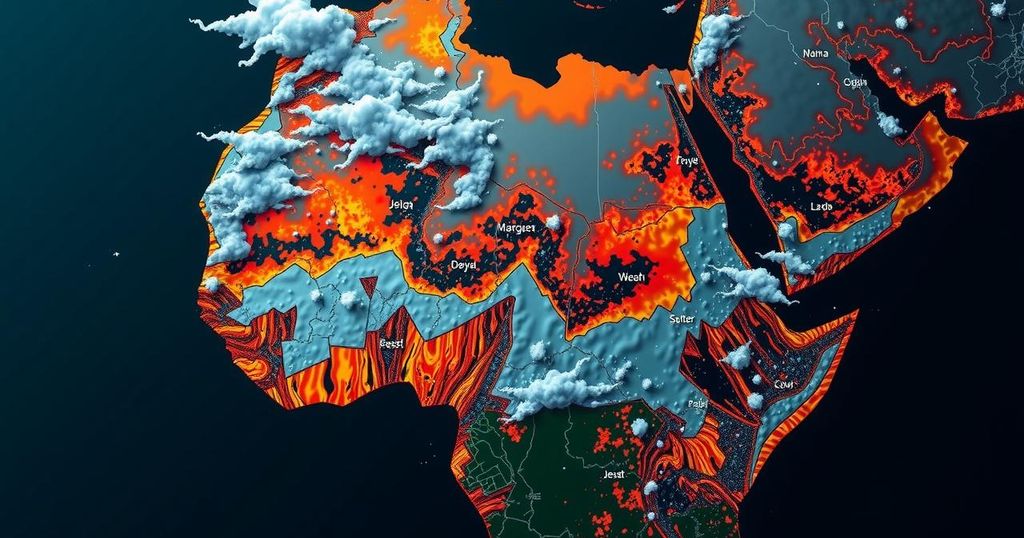The Impact of Climate Change on Extreme Weather Events in Africa: An Urgent Call to Action

Africa suffers disproportionately from the impacts of climate change, as documented by the World Meteorological Organization. Despite contributing only 4% of global greenhouse gas emissions, the continent faces increased flooding and extreme weather due to climate-related disruptions. Experts urge a global response to this escalating crisis.
Recent analyses indicate that Africa is disproportionately affected by the consequences of climate change, despite contributing merely 4% of global greenhouse gas emissions. According to a report published by the World Meteorological Organization, the continent is currently experiencing a drastic alteration in weather patterns, which has exacerbated the severity of flooding and other extreme weather phenomena. Experts emphasize that the correlation between climate change and the increase in extreme weather occurrences is evident, highlighting the urgent need for global action to address the disparities in climate impact versus contribution. These changes pose significant challenges to the livelihoods and safety of millions across Africa.
Africa, while contributing minimally to global carbon emissions, has emerged as a frontline victim of climate change. The continent’s unique geographical and climatic conditions make it particularly vulnerable to the adverse effects of global warming. This vulnerability manifests in extreme weather events, such as intense flooding, droughts, and temperature extremes, which threaten agriculture, water resources, and overall socio-economic stability. Understanding the ongoing crisis in Africa necessitates a comprehensive examination of both the climatic trends and human impacts that contribute to these events.
The report from the World Meteorological Organization highlights a pressing issue: Africa, despite being a minor contributor to global emissions, is severely impacted by climate change. The transformation of weather patterns leading to extreme events poses grave risks to the continent’s population and requires immediate and coordinated global efforts to mitigate these effects and support affected communities. Stakeholders must recognize the unique challenges faced by Africa to implement effective solutions.
Original Source: www.wionews.com






